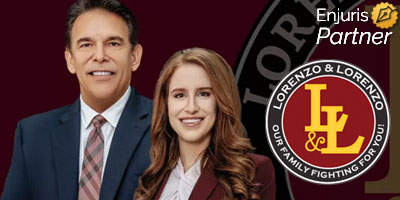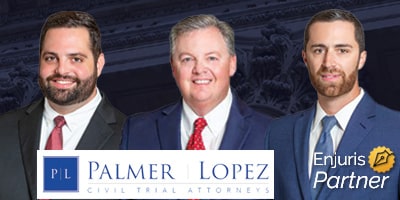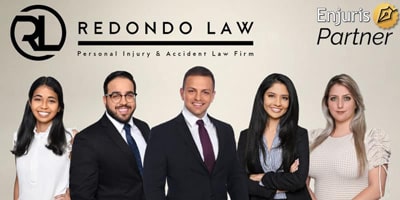What laws cover aviation crashes? How do you choose a lawyer after an airplane accident in Florida?
When people think of “aviation litigation,” their first natural thought (after lawyers) would be planes. Aviation means airplanes, right? Right?
Well, it actually means a lot more than just planes. “Aviation” is a comprehensive term that in Florida, a warm state with lots of year-round sporting activity, includes some of the following:
- Glider accidents;
- Skydiving accidents;
- Balloon accidents;
- Weather-related accidents;
- Military aviation accidents;
- Banner aircraft accidents;
- Helicopter accidents;
- Aviation product liability;
- Drone accidents;
- Air traffic control accidents;
- Airport liability;
- Major airline accidents; and
- General airline accidents.
As you can see, it can mean a lot of different things. In Florida, for instance, banner aircrafts are very popular. You see them all the time over the beach, dragging some flag advertisement behind the plane – “Visit our park!” “Fireworks tonight!” “50% Off Thru Tuesday!”
The Federal Aviation Administration (FAA) determined that most banner towing accidents are usually caused by the banner pickup maneuver; entanglement of towlines; or the loss of aircraft engine power. The other source of litigation comes from restrictive ordinances or the right of a pilot to fly the banners in the first place.
These lawsuits range from personal injuries to First Amendment rights. An attorney has to really know his stuff.
What might cause an aviation accident?
Figuring out exactly what caused a plane, jet or helicopter to crash is challenging and can take a long time. Sometimes it can take years. FAA investigators occasionally must coordinate with foreign officials to extract the “black box,” a recording unit with a crash-survivable solid-state memory unit. (These used to have magnetic tape but have since been upgraded so that they can survive in even the toughest conditions.)
These can live in drastic environments for quite a long time, preserving the imperative moments right before a crash so that investigators can learn what happened in the cockpit and prevent it from happening again.
Crashes (or, as FAA investigators call them, “incidents,” which somehow sounds worse) can happen for a wide variety of reasons:
- FAA regulation violation: This could include using the wrong runway, an altitude deviation, airspace violation, or inadequate fuel reserves, for instance. For instance, there might be two planes on the same runway. That would not be a good situation.
- Defective equipment or technical error: Was the navigational equipment working properly? A products liability suit could be initiated against the manufacturer.
- Piloting error: Was the pilot unconscious? Sick? Beaten by a hijacker? Somehow negligent? Grandstanding? Tired? Mishandling the controls?
- Air traffic control error: Sometimes the error is on Earth and fault lies with the people on the control tower or the landing strip.
- Fueling or intake problem: If there wasn’t enough fuel to get the plane to its ultimate destination, this would likely be a case for gross negligence.
- Faulty maintenance or structural issue: Was the plane in shape to fly? Was everything checked prior to taking off?
- Other negligence: This could include flight crew negligence (failing to do safety checks, for instance, or dragging a passenger off a plane to make room for staff, as happened with United Airlines) or corporate negligence.
Who would need an aviation attorney in Florida?
An aviation lawyer can help more than just pilots. He or she can represent a range of clients when it comes to aircraft and airport litigation:
- Fixed base operators
- Aviation employment companies
- Staff leasing companies
- Aircraft owners
- Airports
- Pilots
- Manufacturers
- Skydiving operators
- Aviation maintenance companies
- Domestic/international charter operators
- Aviation insurance companies
- Oil companies
- Mechanics
- Anyone else involved with aircrafts or aircraft facilities
Who can be held liable?
- Manufacturer: When a product is found to be defective, the manufacturer can be held liable for any injuries that the defect caused. This theory is known as “strict liability.” If a manufacturer puts a product into the stream of commerce, it’s responsible for that product, no matter where it ends up.
- Common carrier: Commercial airlines are held to high standards because they present themselves to the public as “common carriers.” They carry any passenger who purchases a ticket from them. The FAA is in charge of rules and regulations regarding common carriers, which are more stringent than those around private carriers (IE, personal planes).
- Owner/operator: If the owner of an aircraft is proven to have been reckless while operating an aircraft, then he or she will likely be held liable for damages to injured parties. The pilot can also be held responsible under the theory of vicarious liability, or respondeat superior, which is when the employer is responsible for the actions of the employee during the course of employment.
What specific legal claims can be claimed?
These are some, but not all, of the claims that could be raised:
- Respondeat superior/vicarious liability: This means “Let the master answer.” The employer is responsible for the employee’s actions during the scope of his or her employment.
- Strict liability: In products liability cases, this is when a defendant puts a product into the stream of commerce and holds responsibility for whatever damages that product causes.
- Negligence: the defendant owed a duty of care to the plaintiff (also known as the victim); the defendant breached that duty of care; the plaintiff was injured; and the defendant’s breach caused damages.
- Federal Tort Claims Act: This act allows private citizens to sue the federal government and its employees for torts committed in the scope of federal employment.
- Florida Tort Claims Act: This is the Florida version that allows private citizens to sue the Florida state government and its employees for torts committed in the scope of government employment. The state is liable if the employee fulfilled three conditions: the injury must have been caused by a negligent act, the injury can be financially compensated and the employee would have been liable as a private individual. However, you must wait until after a 180-investigation period, and you have to bring the claim within three years. If it is a wrongful death claim, the statute of limitations is two years.
Do the airlines have any defenses they can claim in Florida?
The airline can respond with typical personal injury or products liability defenses. However, operators of smaller aircrafts (meaning those owned by private citizens) can try an additional defense: The General Aviation Revitalization Act of 1994 bars lawsuits against the manufacturers of small private airplanes if the accident involved an aircraft or part that has been in use for 18 years or more.
Granted, when we say “small” aircraft, that means fewer than 20 seats, so this is a very narrow defense.
What can the families of airplane crash victims do?
There used to be a wave of attorneys toward the scene of airplane crashes. Whenever there was an “incident,” attorneys would call the victim’s family to offer their help. Limits on attorney solicitation have been imposed by creating the Aviation Disaster Family Assistance Act of 1996. This suppressed the surge of business cards, phone calls and lawyers actually popping up at funerals in the early ‘90s.
The Act also did other helpful things for the families of aviation incident victims. It made the federal government support the families by requiring the airlines and the National Transportation Safety Board to provide the following services:
- Victim identification and forensic identification;
- Translation;
- Daily briefings;
- Safe grieving places that would be uninterrupted by the press or lawyers;
- Memorial services;
- Communications with foreign governments;
- Mental health and counseling; and
- Meetings with the families of victims.
The airline was also responsible for establishing a toll-free telephone line for the families, providing a list of all passengers on the flight, informing families of the death of family members (which you’d think would be compulsory anyway), and assisting the families with travel to/room & board at the location of the accident.
Finding a good aviation attorney in Florida
Searching for the right lawyer to help with recovery of damages after an accident involving an aircraft in Florida is important. Here are some of our best resources to help in your search:
- How to find a good Florida personal injury lawyer
- What does a Florida personal injury lawyer actually do for you?
- How much is my injury worth? Calculating injury settlement value in Florida
Finding an attorney who is knowledgeable in aviation law can be challenging. If you are in need of one, consider speaking with a Florida attorney in the Enjuris law firm directory – they will be able to help.
See our guide Choosing a personal injury attorney.




